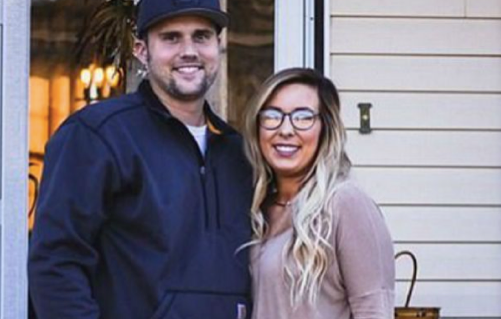
Teen Mom OG Star Makes It Out of Rehab, Ready to Move Forward
The season 7 premiere of Teen Mom OG opened with a heavy dose of reality that is familiar to millions of Americans. Mackenzie Standifer, who married Edwards — he shares 8-year-old son Bentley with Maci Bookout — in the final moments of season 6, visited the troubled reality star in rehab in Dallas, Texas, on Monday’s episode.
Speaking to MTV producer, Kiki, about Edwards’ substance abuse issues, Standifer revealed that her husband had allegedly been paying a lot of money to obtain drugs.
“He said that he was using three times a day,” Standifer told Kiki while at her rental home in Texas. “Ten thousand dollars a week!”
“That’s a s— ton of money,” Kiki said.
After leaving rehab, Ryan Edwards was seen speaking to his wife, Mackenzie Standifer, who told him that his therapist informed her that he was in a very scary place with his addiction before entering treatment. At that point, Edwards came clean about his behavior before rehab, admitting that he would frequently lie to Standifer about where he was going in order to hide his drug use.
An Example of What Ryan Edwards May Experience in Treatment
Rehab can be a shocking experience as you come out of the drug-focused stupor you have been engaged in for months or even years. When you create a new baseline for yourself, one that isn’t dependent on getting your next fix, the reality of how you have been treating loved ones and family can be difficult to deal with. For the reason, there is often limited contact with the outside world during your initial detox period. After the detox window which is typically 7 days, a transition into ‘residential’ treatment begins. This treatment phase can range from 3 weeks to 60 days depending on the center and the needs of the patient. The best centers will integrate family therapy or a family program. This may be a group the families participate in without the patient present. While the patient is engaged in individual or group therapy, learning about the disease of addiction and how to manage it, the family too has much to learn about the chronic disease that is now part of their lives.
Treatment for addiction doesn’t end after discharge from a facility. There is a false notion that some may have that addiction was ‘treated’ and ‘cured’. Much like being diagnosed with diabetes, life after rehab should follow a new path, one that constantly re-evaluates where the patient is mentally and emotionally. This new life will be in many ways more vibrant and worth-living, but also more challenging.
It can be difficult to admit to yourself and your loved ones that you need help for a vice, like addiction, but seeking help is the best bet for your future. Our cutting-edge therapy including our Neuro Rehab Services can be the change you need to quit your substance abuse once-and-for-all.
Update: See our update on Ryan Edwards: Ryan Edwards After Rehab






